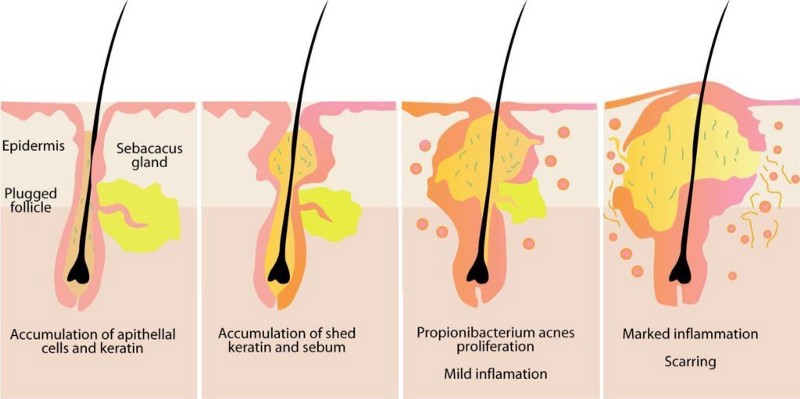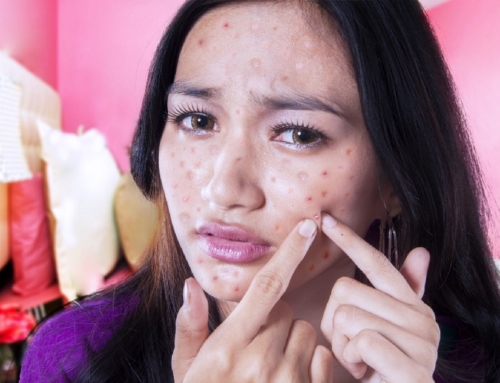The relationship between diet and acne has been questioned and discussed by world’s leading dermatologists for years together. However the question remains, is our diet related to the breakout of that dreadful and scarring acne on our skin? The current status of the relation between the two is unclear and under debate. On the other hand, recent studies have suggested a rather close relationship between diet and acne.
“Let food be your medicine and let medicine be your food”

This statement has been one of the pillars of Hippocrates’ teachings, the founder of Modern Medicine. His ancient but very wise statement does hold some truth. Myths about acne are almost as common as the skin problem. The exact cause of acne is unknown, but there are a number of factors that can bring on acne or make it worse, including hormones, genetics, and emotional stress. Recently, dermatologists have taken another look at whether diet’s role in acne is a myth. Several new studies have examined the possible link between diet and acne; particularly carbohydrates and dairy products. Western diets are often deficient in the longer chain Omega-3s. The ratio of Omega-3 fatty acids in a typical Western diet can be 10:1–20:1, versus a 3:1–2:1 in a non-Western diet. In general Western diet is not only deprived of omega-3s but is also a diet rich in carbohydrates. Studies failed to support a link between the consumption of chocolate or sugar and acne. Recent studies though suggest that there MIGHT BE a link between consumption of milk and acne. The studies have also suggested that milk consumption could potentially alter insulin production.
Recent reports suggested that foods with a high-glycemic index may contribute to acne by elevating serum insulin concentrations. A high-glycemic diet requires more insulin to maintain glucose levels. This could lead to insulin resistance, which in turn can cause numerous health problems including high BP, heart disease, obesity and diabetes. On the contrary, low-glycemic index foods were associated with lower acne severity. High glycemic load seems to be associated with the occurrence of acne, and a recommendation for a low-glycemic load diet cannot harm the patient. The glycemic index (GI) is a ranking of carbohydrate-rich foods based on their potential to increase blood sugar levels. Foods with higher glycemic index values raise blood sugar levels much quicker than foods with lower glycemic index values. The glycemic load (GL) takes into account both the quality and quantity of carbohydrates being consumed in a serving of food. For example, high-GI foods include white bread, chips, and white potatoes; low-GI foods include multi-grain bread, peanuts, vegetables, and beans.
Other evidence of the link between diet and acne stems from patients with polycystic ovarian syndrome because acne is a common symptom of this condition. Specifically, studies have shown that acne improves when these patients are treated with medications that improve their body’s ability to regulate or control blood sugar, and a low-carbohydrate diet also has been shown to stabilize these patients’ hormones, which can cause breakouts.

Therefore, we cannot rule out the possibility that diet has no affect on acne. Especially when diet influences the absorption of a nutrient or a drug that affects the mitigation of that disease. Patients with acne need to watch out for food triggers and/or food related allergies that may aggravate the condition. I encourage people to reach out to a Board Certified Dermatologist for the right guidance on acne and its treatment as well as on a proper diet plan that will aid in its healing.




